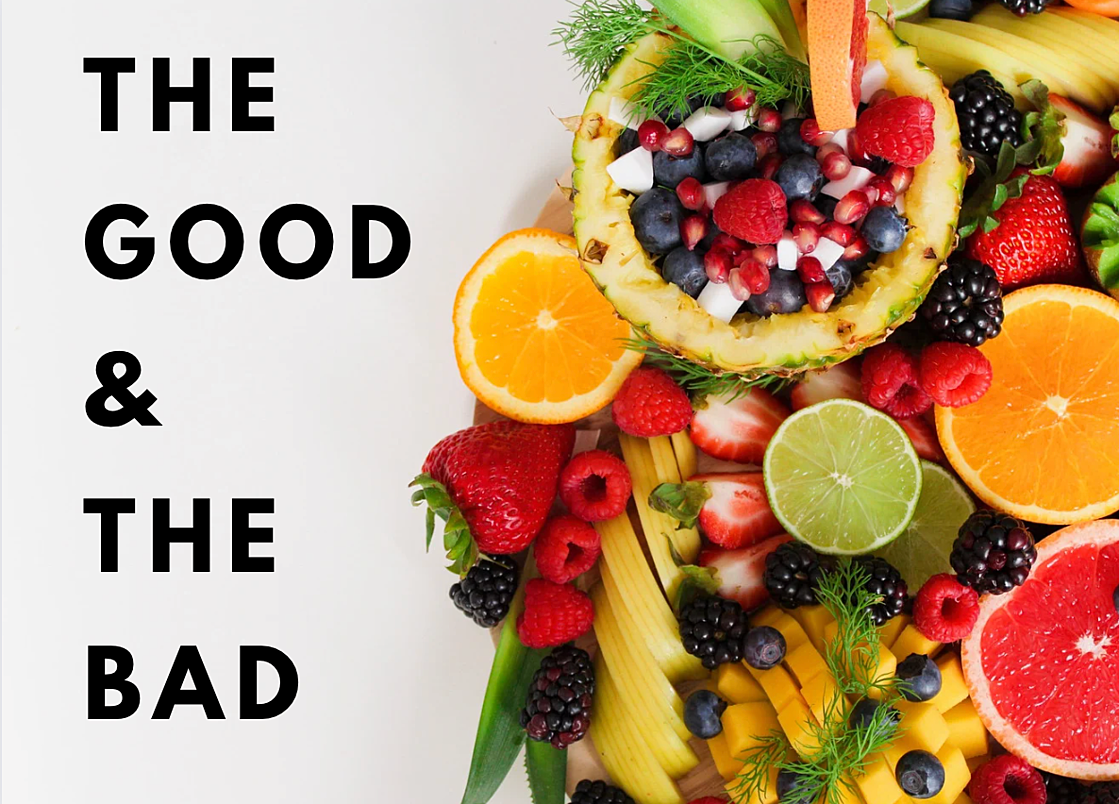Is Fruit Good for You? 4 Tips to Make the Right Choice.
Summer is right around the corner so we hope you are staying on track with your nutrition and workouts!
However, today I won't be chatting about movement or workouts but more so nutrition. And specifically fruit, as it is one of my favorite summer foods.
Fruit is a hot-button topic these days as some people say it is to be avoided because of its sugar and other experts say it is integral to a well-balanced diet. What is the truth?
Fruit is full of vitamins, minerals, fiber, and polyphenols - which are all highly beneficial for your body. It is also a great carbohydrate source for energy. However, most would agree that problems arise when you strip a fruit of its fiber and eat it in other forms.
Let's dive in on some quick things to note about fruit so you can enjoy this tasty food this summer!
1. Be wary of fruit juices! Eat the whole thing instead.
When you drink fruit (think Orange Juice, Apple Juice, summer cleanses, etc.), you get all the sugar from fruit but with little fiber to slow your digestion and absorption = a massive blood sugar spike.
When you eat the whole fruit, the fructose (sugar) is paired with fiber = slower digestion. The fiber in fruit also helps to clean your intestines and feed your gut flora.
Does this mean you should never drink fruit juices? No... but it would be wise to reconsider if you are overweight, insulin resistant, or T2 diabetic!
Eating whole fruits or making fruit smoothies is typically a safer bet. Adjust your fruit intake towards activity levels and personal health.
2. Fresh, frozen, or dried? Which fruit should I eat?
Fresh fruit is tasty and but typically more expensive to maintain! Sometimes it actually has less nutrients depending on when the fruit was picked (if it is ripe or not).
Frozen is less expensive and arguably more nutritious than fresh fruit for this reason: it is flash-frozen during the peak of its nutrient development. This means you don't have to worry about nutrient degradation because you simply thaw the fruit (or blend it up in a smoothie) when you are ready to eat.
My favorite time to eat frozen fruit is post-workout in a smoothie. I blend up 25 grams of Whey protein, 25 grams of collagen, 5 g creatine, 2-3 cups of mixed berries, and either water or raw milk.
Dried fruit might be the least satiating, as dried fruit is condensed and has been dehydrated. If you are going for dried fruits, many store-bought packages ALSO have added sugars, so be careful.
3. Berries are KING for these reasons:
-They have the lowest blood sugar impact out of fruit
-They supply us with antioxidants and phytochemicals which help prevent chronic diseases like diabetes, dementia, heart disease, cancer
-They are high in fiber and Vit C and antioxidant polyphenols
-They taste amazing
Some of my faves are wild blueberries, blackberries, raspberries, and strawberries. You choose!
4. Protect yourself from pesticides - organic is typically best.
When shopping for fruits and veggies, we buy mostly organic. However, it can get expensive so use these two lists to shop smarter:
The Dirty Dozen is a list of fruits/veggies that have the MOST pesticide residue, so these are best bought organic.
The Clean Fifteen is a list of fruits/veggies found with the LEAST pesticide residue, so this is OKAY to not buy organic.
Summary
If you are looking to improve your diet and health, a whole foods diet high in protein (1g/lb body weight) and healthy fats is probably your best starting point.
From then, you will want to tailor your carbohydrate intake towards activity and health goals, and I believe fruits are one of the best options! So be sure to enjoy fruit with a balanced and well-rounded diet and plenty of exercise, but be aware if you are already consuming lots of sugar/processed carbs or are overweight/ insulin resistant.
Until next time,
Cam at Whealth

